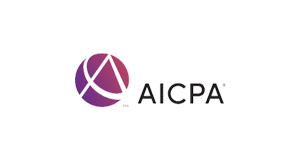Retirement brings significant shifts in life. You go from:
- Setting the alarm clock daily… waking up whenever you happen to wake up!
- Longing for the weekend to get here…to having every day feel like a weekend!
- Having to do things… to getting to do things!
What about financially speaking? The big financial shift we all face is moving from accumulation to distribution.
Here’s what I mean.
You’ve spent your whole career accumulating what many refer to as “a nest egg.” Sure, you’ve been paying a mortgage, buying groceries, putting braces on your kids’ teeth, taking vacations–all that good stuff.
But also, steadily throughout your career, you’ve been putting amounts of money into savings. A little bit here, a little bit there. Thankfully, the principle of compounding has been working for you. As a result, your portfolio of assets has grown.
During that long accumulation phase, you’ve amassed a nice TSP (if you’re a government employee). Or perhaps a healthy 401(k) or a good-sized Roth IRA.
Retirement, of course, means no more work. That means no more paycheck, no more earned income. And when that happens, most people stop adding money to savings or retirement accounts. The accumulation phase is over.
This is a hard shift for many. You are leaving the accumulation period and moving to the distribution phase of life. At Christy Capital, we find this is one of the hardest emotional transitions for employees to get used to. “You mean I’m not going to save anymore? I’m only going to spend money! But wait! What if I run out?”
These are common thoughts. And that’s a valid emotional experience as you transition from one phase to the other. It’s all very normal. But mentally, it’s necessary to anticipate that transition and get comfortable with the idea of withdrawing the money that you’ve worked so hard to gather and grow. You were disciplined for all those years for exactly this purpose: so that in this next, non-working chapter of life, you can take money from your account to meet your living expenses.
The main thing is to do this with a well-thought-through plan in mind. This is where a good advisor is so valuable. He or she can help you figure out how you’re going to draw that money out in a way that limits your tax exposure, protects your wealth, provides income as long as you need it to last, and gives you the opportunity to leave the financial legacy you want.
It’s important to tie all those pieces together. When you do that, you have the potential for real success and genuine satisfaction as you live through the distribution phase.
It’s a big adjustment, moving from the accumulation phase of life to the distribution phase. But getting more detailed, what are the major financial changes that happen in retirement? Let’s look at some fiscal realities both pre-retirement and post-retirement and see how they compare.
Pre-retirement realities:
- Housing costs. Let’s say you had a $1,500 mortgage for much of your working life. Ideally, you’ll pay that off either before, at, or perhaps shortly after retirement. That expense–or the elimination of it–is a major shift. It’s important to factor that into your retirement budget. Perhaps you’ll need to withdraw more during your first years of retirement to finish paying off your mortgage. Once it’s taken care of, you can adjust how much of a distribution you take.
- Work-related expenses. These obviously go away once you stop working.
- Family expenses. During the first 20 or 25 years of their careers, most working adults are paying for diapers, sending kids to private school or camp, and buying cars for adolescent children. What can we say? Kids are expensive. A client told me recently that his three teenage sons guzzle about seven gallons of milk a week!
But by the time you retire, those expensive years are behind you. Many parents get to the stage of the empty nest and realize they just got a big pay raise! However, when the kids are grown and gone, most admit they miss it. The house gets quiet–a little too quiet. - Retirement savings. All that money you’re squirreling away in your TSP or 401(k) or Roth IRA–guess what? You won’t have that “expense” once you retire. Remember, the accumulation phase ends once you stop getting a paycheck. Therefore your retirement budget doesn’t have to have a column for retirement savings.
Now, let’s take a quick look at . . .
Post-retirement fiscal realities:
- Mortgage paid off. As mentioned, one big (positive!) change for a lot of retirees is having no mortgage payment.
- Higher health care costs (potentially). Medicare helps, but most retirees have to purchase supplemental policies.
- Long-term care costs. Assisted-living facilities and nursing homes are anything but inexpensive.
- Entertainment-related expenses. Do you plan to travel? You have to make sure you built that in the budget. Will you engage in expensive hobbies? Some say they’ll cut back on certain fun activities because they know they’ll have less income. But then, because they have so much time, they end up doing those things more! Make sure you’re realistic with yourself. Look yourself in the mirror and say either “I’m going to be okay doing without this” or “ I need this particular activity to have a good quality of life?”
- Asset withdrawals. Retirement, as we’ve noted, is the distribution phase of life, so you want to make sure you are distributing your money wisely. Here’s where good retirement and estate planning are so important.
Your retirement distributions need to align with your overall estate plan. We can’t discuss all the aspects and nuances of this in one short blog post, but here are some considerations you definitely want to discuss with your advisor:
- Charitable gifts (Assuming you want to leave a large sum to a favorite organization, what are the current laws?)
- Gifts to heirs (Do you plan to leave assets to heirs? What are the options for gifting them while you are living? How can you do this in a way that’s tax-free–or that at least avoids unexpected tax nightmares?)
- Assets at death (Are you in danger of putting your spouse in a higher tax bracket?)
Complicated questions like these point out the importance of making sure you’re putting money in the right buckets now–and that you’re doing so under the watchful eye of a skilled financial planner. Not only do you need to think about your retirement income needs, but also your long-term estate planning.
We’ve mentioned financial advisors a couple of times here. If you’ve got a good one you trust, terrific! If you don’t, we’d love to help.
Call us at 866-331-7749 or in the top right corner, you’ll see a green TALK WITH AN ADVISOR button. Click it, and leave us a short message. We’ll be in touch right away.
Let’s talk about how we can help you prepare for a great next chapter.







